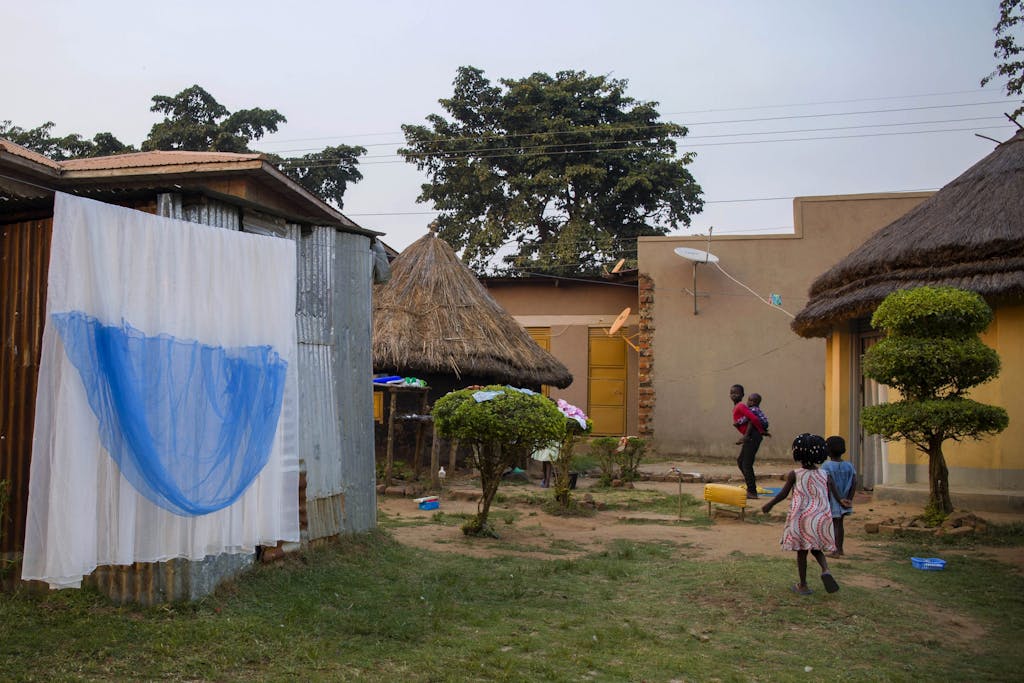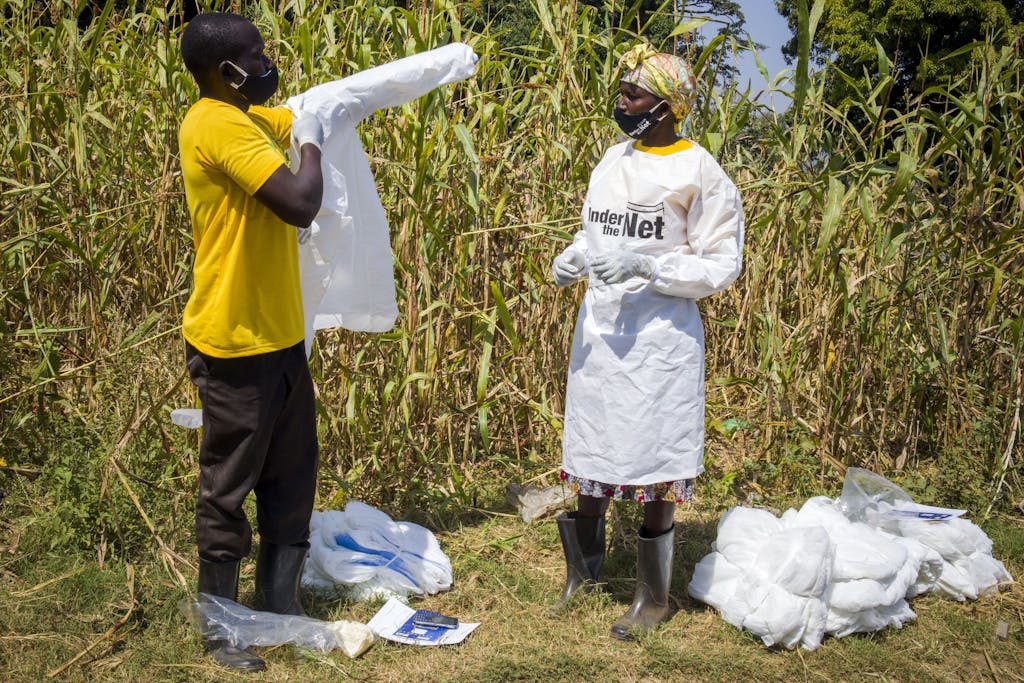Alice Mazakpe is a community health worker in Uganda. As part of the Village Health Team, she travels to rural villages across the country to visit homes, assess health needs, and teach Ugandans how to prevent infectious diseases.
Health workers like Alice are often the only line of defense keeping rural populations protected against one of the world’s most ancient and debilitating diseases: malaria. One of Alice’s main jobs is to distribute malaria-preventing bed nets and to make sure people are using them correctly. It may seem like a simple task, but the effectiveness of bed nets relates to human behavior and knowledge around their usage. Bed nets are one of the most cost-effective ways to prevent malaria; these supplies and the critical messages Alice and other community health workers share are vital to make sure at-risk populations are able to stay malaria-free.
“Every time we visit homes in our community, we prioritize children under 5 years and pregnant women because they are most vulnerable to succumbing to malaria. We encourage people to help themselves by sleeping under mosquito nets as a measure to mitigate the spread of malaria in our community,” explains Alice.

Since bed nets are treated with insecticide to kill malaria-carrying mosquitoes, they offer more than a physical barrier from the pests; they also stop the disease from spreading further by actually killing the mosquitoes. In other words, beyond personal protection, bed nets provide community protection. However, bed nets are only useful in preventing malaria if they are of good quality, if they are used correctly, and if people sleep under them every night. The challenge for a health worker, beyond distributing bed nets, is to educate communities about their proper use and care.
The nets require special care and attention to ensure they can protect people for as long as the nets are supposed to last, usually around three years. If people don’t know how to properly wash and store their nets, they won’t last or protect, thereby increasing a community’s risk of getting sick.
Another challenge is to make sure nets are used only for their intended purpose. “We were able to end the terrible habit of young boys using mosquito nets as a football goal net. As antimalarial drugs are expensive to buy, our best chance lies in preventing malaria instead of trying to treat it after the fact,” said Alice.
That’s where the commitment to quality and innovation of private sector partners like Vestergaard comes in. A major manufacturer of long-lasting insecticidal nets (LLINs) for decades, Vestergaard works to ensure Ugandans have access to durable, efficacious, and sustainable malaria-prevention products that save lives.
The Real Impact of Malaria in Uganda
Malaria is the leading cause of sickness and death in Uganda, accounting for up to 50% of all visits to health facilities. Malaria’s impact ripples throughout Ugandan society by straining health care systems and severely limiting people’s ability to go to work or school. Recognizing this, Uganda has made concerted efforts to reach all populations with front-line health workers like Alice and the Village Health Teams.
When the COVID-19 pandemic hit, these efforts were at risk of stalling. Because of lockdowns and issues with the global supply chain, there was great concern that delays in the normal distribution of bed nets could reverse gains made over the past two decades to stop malaria.

Photo: Vestergaard/Edward Echwalu
Fighting Malaria Amid the Pandemic
Knowing the risks of COVID-19, with the support of Uganda’s public health authorities, these front-line health workers have bravely adapted their work to continue protecting people from malaria, the pandemic, and other diseases. Despite a challenging and uncertain work environment, health workers have embraced new processes and new norms of organization, communication, and training. They have demonstrated resilience by rapidly adapting mass net distributions to a door-to-door distribution model or through crowd-controlled points of distribution in villages to limit interactions. When mass distribution is the only option, health workers closely follow recommended infection control measures to protect themselves and the communities they serve. They continued to share vital messages on how best to protect from malaria and other illnesses. Support from Vestergaard and other private sector partners to secure the global supply chain and allow the distribution of nets to proceed has also played a huge role in getting prevention efforts back on track so that progress against malaria in Uganda, and globally, is protected.
These health workers, and the institutions, organizations, and companies that support them are lifesavers. They make sure that where someone lives doesn’t determine if that person lives and that everyone, everywhere can have access to effective tools to safeguard their health and well-being.
Vestergaard is a proud sponsor of the UN Foundation’s Unite for Health campaign. We are all safer and stronger when we #UniteforHealth
Featured Photo: Vestergaard/Edward Echwalu



 View All Blog Posts
View All Blog Posts

